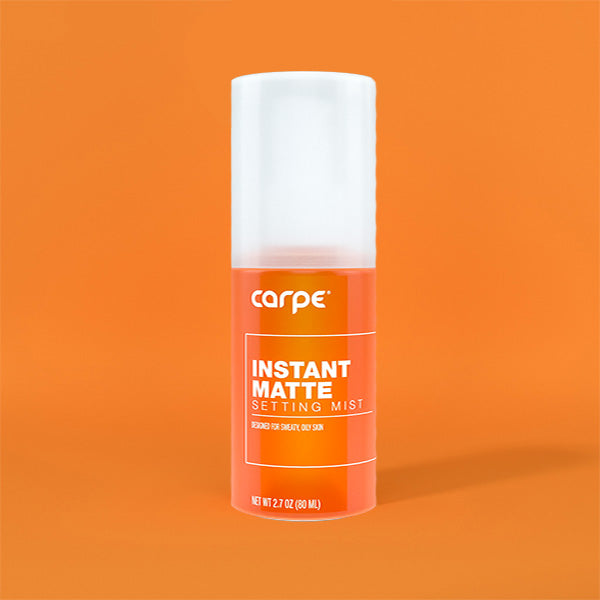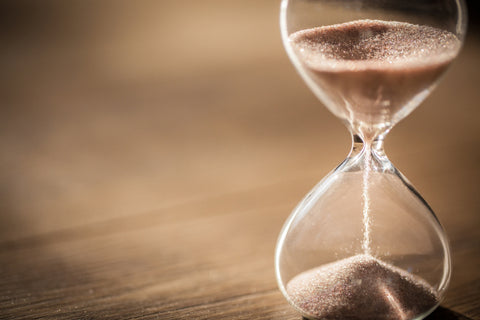Everyone will experience the effects of aging as they get older, but only 50% of the population will go on to deal with the symptoms and changes that occur with menopause. Menopause is a natural part of the aging process for women and it usually begins some time in a woman’s 40s, although it can occur a few years earlier or later. It is the process that occurs when a woman’s fertility begins to decline and she is no longer able to bear children or experience a period. There are three distinct phases of menopause: perimenopause, menopause, and postmenopause. Perimenopause is the first stage of menopause in which women begin ovulating less frequently and they often experience less frequent periods and physical symptoms like hot flashes, night sweats, trouble sleeping, and other hormonal shifts. Menopause officially begins when a woman hasn’t had a period for 12 consecutive months.[1]
Menopause can be a frustrating time for many women because of the physical side effects that occur as a result, especially hot flashes and night sweats. As many as 75% of women will experience hot flashes at some point during perimenopause and menopause, making it a very common symptom. Hot flashes can feel intense and last anywhere from one to five minutes each. Their frequency varies for each woman, some only experience a few a week while others have several hot flashes a day. Some women will also experience night sweats - bouts of intense sweating that only occur during sleep. While hot flashes and night sweats may sound benign, they can be incredibly frustrating, and even debilitating, for some people.[2]
What Causes Hot Flashes and Night Sweats?
No one is entirely sure what causes hot flashes and night sweats to occur, but most doctors agree that it most likely has something to do with fluctuating, and often decreasing estrogen levels that menopausal women experience. Researchers suspect that dropping estrogen levels affect the part of the brain that controls temperature. The body has an acceptable window of what a person’s normal internal temperature can be and it is suspected that decreasing levels of estrogen make this window more narrow. This means that external temperatures can more easily cause a rise in body temperature. Sweating is the body’s natural way of cooling itself down. So, when a woman’s body senses that her internal temperature has risen more than it should it reacts by dilating blood vessels and sweating. This is when a woman experiences a hot flash.[2]
There are a few other theories about the causes of hot flashes and night sweats, although they are not currently proven. The first theory suggests that some women have especially sensitive skin during this time which makes them more prone to experiencing vasodilation and sweating. The second implies that menopause causes an imbalance in the hormone leptin which can in turn cause blood sugar imbalances. These blood sugar imbalances are then thought to cause hot flashes, and possibly night sweats. No matter what the cause, night sweats and hot flashes are hard to deal with![2]
Interestingly, hot flashes and night sweats are considered to be a type of secondary generalized hyperhidrosis. This means that they are a type of excessive sweating that is caused by an underlying medical state or condition. Luckily, there are several medical and practical solutions for this type of sweating. The most effective treatments focus on eliminating the underlying cause while others aim to minimize symptoms and reduce their impact on a person’s quality of life.[3]
Medications that Can Help
There are a few medical treatments that can help women who experience hot flashes. The most effective treatment is called menopause hormone therapy (MHT), it is also sometimes known as hormone replacement therapy (HRT). This type of therapy consists of patients taking a combination of hormones, most often estrogen and progesterone, to keep their hormone levels stable while they are going through menopause. It can greatly reduce symptoms like hot flashes, night sweats, irritability, vaginal dryness, and sleep problems. Unfortunately, MHT can be dangerous for some women and it can cause alarming side effects in others. Studies have shown that women using hormone replacement therapy are at an increased risk of developing heart attack, stroke, and blood clots. This is similar to the risk women take when they use hormonal birth control, but the effects can be more likely to occur in women of a more advanced age. Some evidence suggests that non oral forms of hormone replacement may reduce the risk of blood clots and stroke.[1][2]
Some other medications can be used for women who can take hormones. SSRIs, which are normally used to treat depression, can be taken in a lower dose to reduce sweating in some people. Ironically, SSRIs can also be a cause of secondary hyperhidrosis in some people so watch out for increased sweating if you choose to try them. Another medication used to treat seizures called Neurontin can be beneficial for some. Finally, a medication called clonidine which is normally used to treat high blood pressure can be useful in reducing symptoms for some people.[2]
Other Ways to Improve Symptoms
While medications work well for some people, others prefer to treat their symptoms naturally. There are several practical things you can do to reduce the severity and frequency of hot flashes and night sweats. Here are some solutions that may help you:
Some people have claimed success when they use certain supplements or employ dietary changes. Eating more soy is thought to reduce hot flashes, although this is currently not supported by studies. Other supplements like DHEA, dong quai, ginseng, kava, and red clover have been used by some to manage symptoms. However, no scientific evidence has yet backed the claims that these supplements work up as of yet. Any time you decide to use supplements it is important to consult a doctor and they can cause side effects and interact with other medications.[2]
Sources
- Scaccia, A. (2018, May 16). How Long Do Symptoms of Menopause Last? Retrieved from https://www.healthline.com/health/menopause/how-long-does-menopause-last
- Suszynski, M. (n.d.). Menopause and Sweating. Retrieved from https://www.webmd.com/menopause/features/menopause-sweating-11#1
- Pariser, D. M. (2014). Hyperhidrosis (4th ed., Vol. 32). Philadelphia, PA: Elsevier.
- Santoro, N., pperson, C. N., & Mathews, S. B. (2016). Menopausal Symptoms and Their Management. Endocrinol Metab Clin North Am., 44(3), 497–515. Retrieved from https://www.ncbi.nlm.nih.gov/pmc/articles/PMC4890704/






16790753702383.jpg?v=1679075372)

16790746985853.jpg?v=1679074700)


16790757289763.jpg?v=1679075731)












